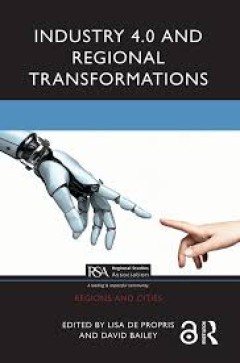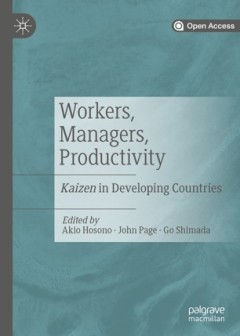Filter by

Hans-Michael Geiger- Informational Efficiency in Speculative Markets- A Theor…
The purpose of this work is to provide a critical presentation and some extensions of two perspectives of informational efficiency: On the one hand the neoclassical perspective or «arithmomorphic approach» explains efficiency in terms of a concept mainly based on an explicit economic theory. On the other hand, in the Austrian perspective or «causal genetic approach» attention is drawn to th…
- Edition
- 9
- ISBN/ISSN
- 9783631755723
- Collation
- -
- Series Title
- Allokation im marktwirtschaftlichen System, 29
- Call Number
- HG6015

Energy efficiency and indoor environment quality
This Special Issue addresses a topic of great relevance. In developed countries, there is a higher prevalence of people choosing to spend time indoors. Data show that the time a person spends at home ranges from 60% to 90% of the day, and 30% of that time is spent sleeping, though this varies depending on the individual. Taking into account these data, indoor residential environments have a dir…
- Edition
- -
- ISBN/ISSN
- 9783036525075
- Collation
- vii, 184p.: ill.
- Series Title
- -
- Call Number
- 690 LEZ

Industry 4.0 and regional transformations
This volume brings together expert contributors to explore opportunities and challenges that Industry 4.0 is likely to pose for regions, firms and jobs in Europe. Drawing on theory and empirical cases, it considers emerging issues like servitization, new innovation models for local production systems, and the increase in reshoring.This volume brings together expert contributors to explore oppor…
- Edition
- -
- ISBN/ISSN
- 9780429057984
- Collation
- XVIIII, 257 p.
- Series Title
- -
- Call Number
- 338.064094 IND i

Workers, managers, productivity : Kaizen in developing countries
This open access book provides a glimpse into the Japanese management technique known as “Kaizen,” and the ways it has been disseminated around the developing world. The novelty of this book is three-fold: it provides a contextualized view of the mechanisms of initiatives implementing Kaizen in developing countries; compared with productivity studies, it places the relationship between work…
- Edition
- -
- ISBN/ISSN
- 9789811503641
- Collation
- xxvi, 327p. : ill.
- Series Title
- -
- Call Number
- 658.406 WOR w

Financing quality education for all: the funding methods of cumpolsory and sp…
In OECD countries the average expenditure on primary and secondary education institutions is about 3.5% of GDP. The investment in education has large implications for economic development and the proper functioning of democratic institutions, as well as overall well-being. However, clear consensus and guidance on which system leads to the best educational outcomes is lacking. This volume descri…
- Edition
- -
- ISBN/ISSN
- 9789461663009
- Collation
- 164p.: ill.
- Series Title
- -
- Call Number
- 379.11 WIT f
 Computer Science, Information & General Works
Computer Science, Information & General Works  Philosophy & Psychology
Philosophy & Psychology  Religion
Religion  Social Sciences
Social Sciences  Language
Language  Pure Science
Pure Science  Applied Sciences
Applied Sciences  Art & Recreation
Art & Recreation  Literature
Literature  History & Geography
History & Geography